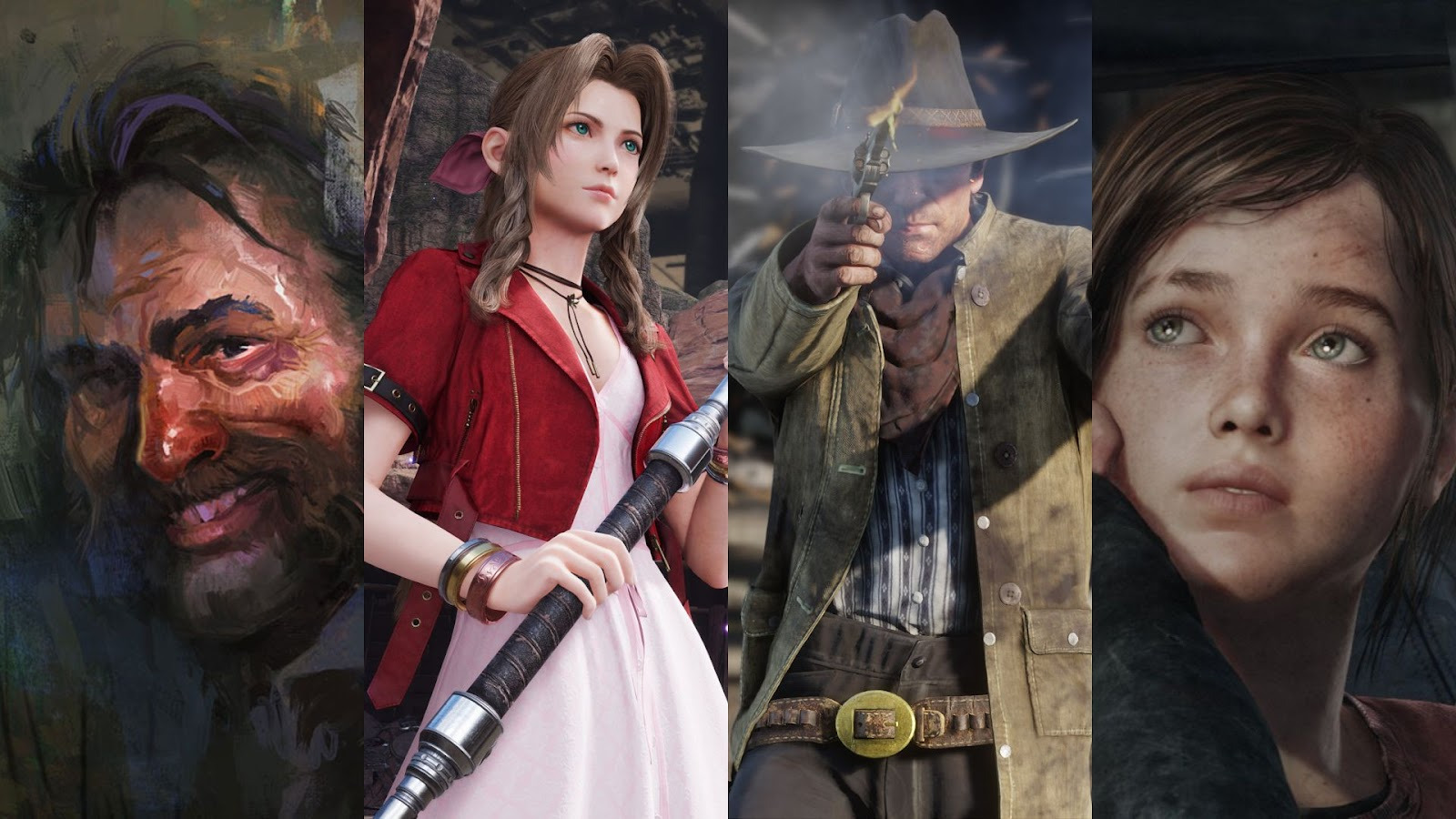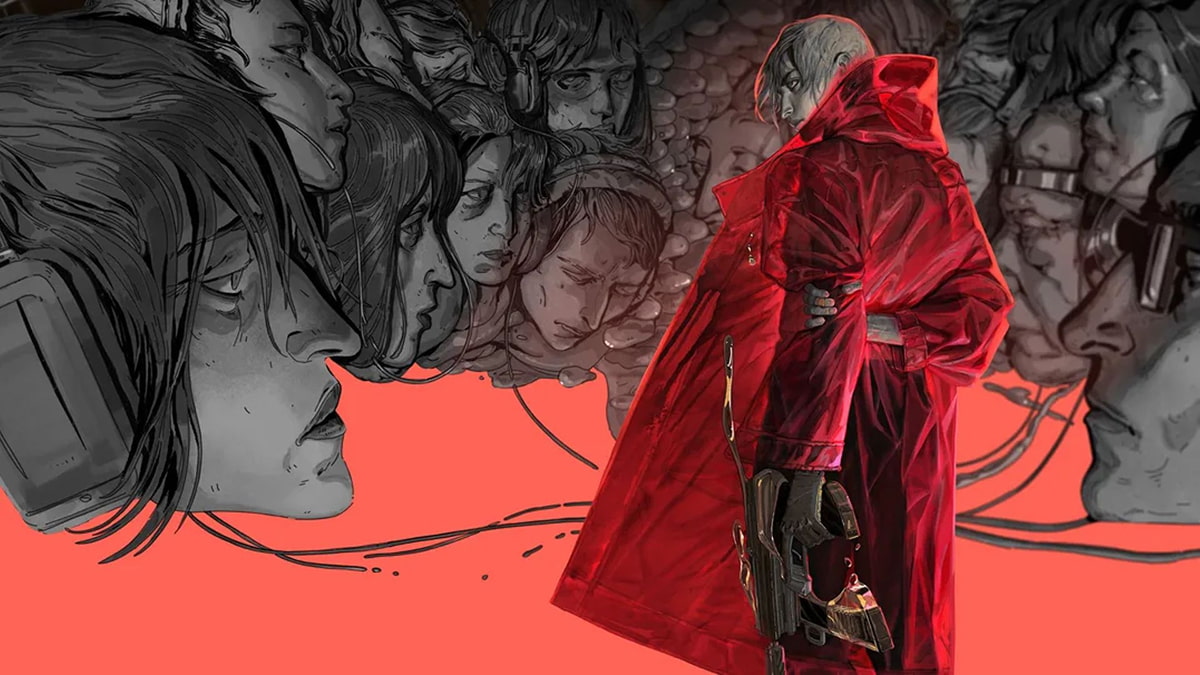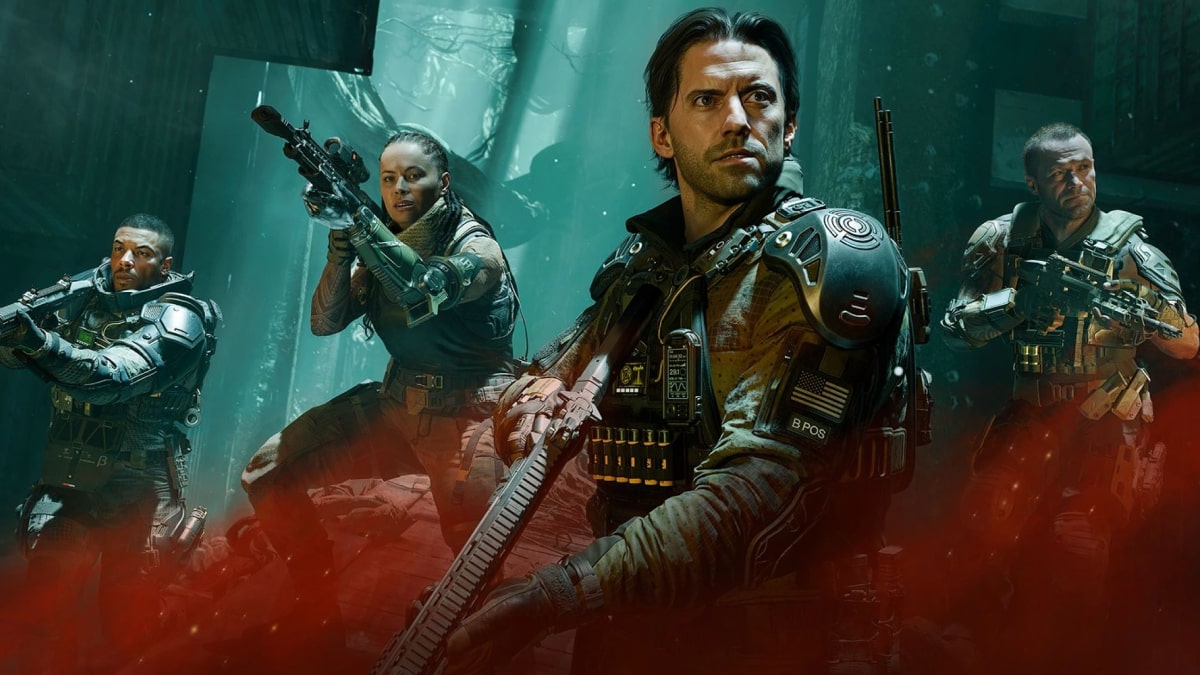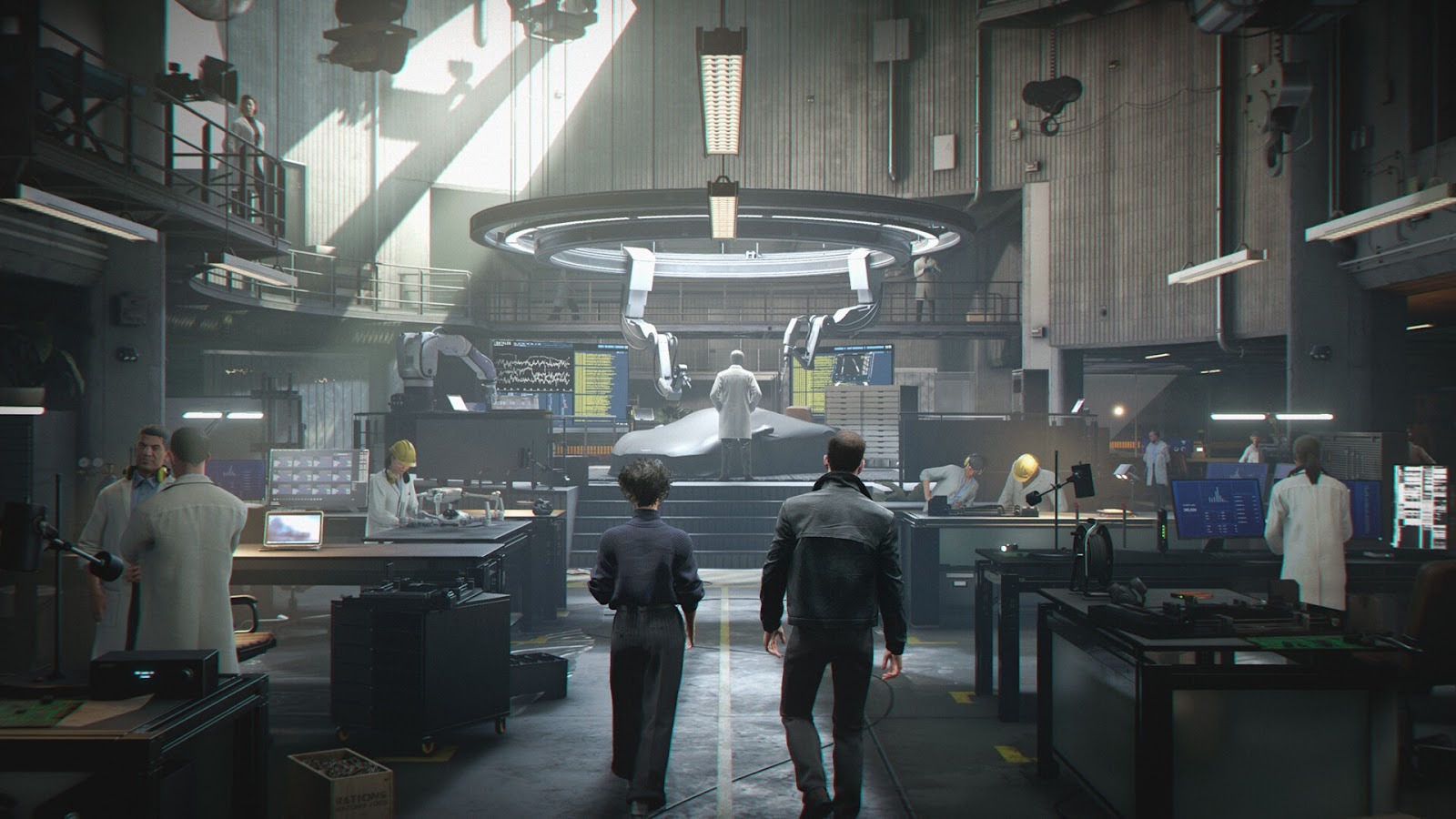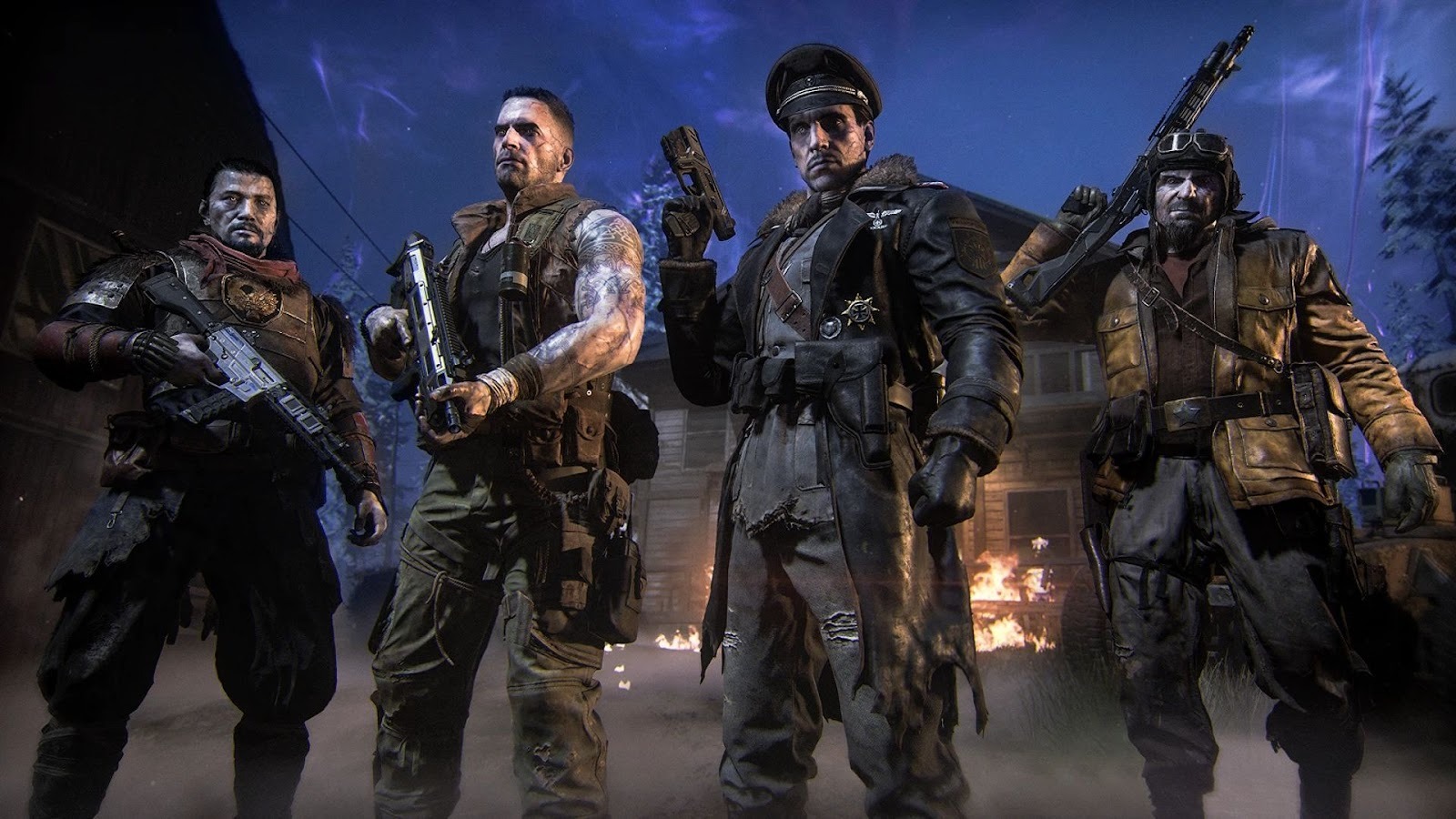You can trust VideoGamer. Our team of gaming experts spend hours testing and reviewing the latest games, to ensure you're reading the most comprehensive guide possible. Rest assured, all imagery and advice is unique and original. Check out how we test and review games here
Valve start online revolution
/https://oimg.videogamer.com/images/4505/halflife2.jpg)
Imagine a future without game stores. A future where Britain’s High Streets are devoid of the occasional, imposing purple of a GAME sign, or jutting, nondescript GameStation marker; in their place some uber-express supermarket or mechanical corporate coffee shop. Imagine a future where game retail simply doesn’t exist. In this utopia, you purchase your games over the Internet from the websites of the developers who made them. They whiz down the virtual network at some ridiculously incomprehensible high speed, arriving a few minutes later on your desktop, one click away from gameplay heaven.
This week, this vision moved one step closer to the present when Valve announced that their long running legal battle with Vivendi Universal Games was over, ensuring that the publisher will no longer distribute boxed Valve product from the 31st of August this year. From then on Steam (Valve’s online distribution solution) will be the only way gamers can get their hands on the multi-million selling Half-Life and Counter Strike franchises.
Like music retailers when first faced with websites like Napster, their electronic entertainment cousins are terrified at what this move might represent. Taking one extreme, it could end their existence altogether. The advantages to the gamer are obvious; take out the middle man and, theoretically, game prices come down. More realistically, though, the saving will be shoved back into development.
Ideally, the success achieved with Steam and Half-Life 2 will convince others of the viability of online game distribution. Then, as it becomes standard practice over the next five years, independent developers and publishers will have improved chances of continued existence. For the gamer, better, more risky games might start to crop up.
But, of course, this is a distant ideal. While it might prove successful for Half-Life 2, with its technologically savvy core PC gaming audience, to be made available to purchase through download only, Mrs. Jenkins, Forty-something mother of fifteen-year-old Johnny, is going to want to get her son’s Christmas present at the same time as all those other troublesome gifts from the High Street.
So, while Valve are pushing the boundaries of what the traditional game industry business model can be, until EA sell FIFA 2010 through download only, tills will ring loudest in game shops. And, as if in admittance of this fact, late in the week Valve moved to reassure concerned UK retail (who stand to lose £8 million in sales of their products) that they were making arrangements to ensure their products will still fill the shelves come September.
UK game development mirrors general election
/https://oimg.videogamer.com/images/306f/codemasters.jpg)
In the wee hours of Friday morning (I was up smashing my GBA SP into smithereens at yet another WarioWare Inc failure), as news began to filter through that Labour had secured a historic third term in office, and that the Conservatives were consigned to second place for the third time in a row – a position they look increasingly unlikely to improve – I was reminded of a press release that fell into my inbox only a day earlier.
It was from Barrington Harvey, games industry PR extraordinaire, revealing that “UK DEVELOPMENT IN £250M RUDE HEALTH AS ‘DEVELOP 100’ RANKS COMMERCIAL SUCCESS OF STUDIOS.” That is, Develop magazine had, for the first time, calculated the top 100 game companies according to performance at UK retail, and that individual UK development was doing a sterling job.
But upon closer examination, the comparison between UK development and the Conservative party becomes clearer. UK output accounted for £250million in 2004, compared to £350million from US developers. Although the UK beats Asia and the rest of Europe, like the Tories and Labour, is there any indication that those in second place might catch up, indeed might usurp the front runners?
Here’s the top ten:
1. EA Canada (£93,513,089 generated at UK retail)
2. Rockstar North (£71,067,230)
3. Maxis (£31,907,533)
4. EA Redwood Shores (£30,600,306)
5. Ubisoft Montreal (£22,930,009)
6. London Studios (SCEE) (£22,914,433)
7. KCE Tokyo (£22,127,973)
8. Sonic Team (£20,762,935)
9. Codemasters (£19,153,610)
10. EA LA (£18,934,945)
Without Rockstar North and the success of Grand Theft Auto we would be miles behind the US. EA’s stranglehold on the UK game buying public is cemented in the top-ten, ensuring a very American feel to the games most of us are playing. This phenomenon is to be found across almost all entertainment media globally, from US sitcoms to Hollywood blockbusters and US rap-artists. Indeed, many game industry professionals have to look abroad to find work. Might this change? Is it likely UK development might emerge from the rubble of the game battlefield, like a master returning to his destitute house?
With the current problems affecting the UK game industry, including dev studio closures, buyouts and consolidation, perhaps we’re a long way off growing our own food, rather than importing pre-packed ready meals from the soil of the US.
But then…
Another press release pops into my inbox, and makes me think that, actually, UK game development has much to be proud of. Notice number nine in that list above? Yep, that’s Codemasters, (Codies for short) the Warwickshire based publisher/developer that gave us the LMA Manager, Colin McRae Rally and TOCA Race Driver games – three very British franchises indeed.
Not only are Codemasters a successful example of UK development appealing to UK gamers, but they’re the number one independently owned video games developer in the official Develop top-100 list. Although the list counts all the development studios under Codemaster’s wing, it’s no mean feat. Codies are flying the flag.
Comics… Games… Gamics
I love it when gaming is turned into clay. In the hands of a skilled sculptor anything can be formed. From a small, uninspiring beginning, a breathtaking piece of creative genius can be born. Like Machinima before it, now, so, with gamics. This week I caught the gamics bug, essentially a webcomic that uses game screenshots as its canvass. Check it out here, a collection of gamics from talented Nathan Ciprick. As he says:
“Simply put Gamics offers an opportunity to tell stories. With nothing but great admiration for the talented artists who create our games, Gamics seeks to tell new stories that treat the material with the respect they deserve.
These vast and beautiful virtual worlds invite us into their reality every day. We become a part of them in our minds. Now, through Gamics, we can discover new stories in their world.”
Personal highlights include ‘The Immaculates’, set in the universe of Everquest 2, and ‘Path to the Force’, which uses Star Wars Galaxies to tell the tale of a Wookie. Although Ciprick’s gamics are serious in tone, they reminded me of a hilarious webcomic I used to read regularly called Nuklear Power. It’s a hilarious comedy that uses old 8-bit sprites from Square’s Final Fantasy franchise to tell the story of six clichè-ridden adventurers and their bumbling efforts to save the world. Although now into the 550th episode, it’s worth the effort, if only for Black Mage’s constant putting down of Fighter (Chandler/Joey eat your heart out!).
Blue Dragon rises
/https://oimg.videogamer.com/images/51cc/mistwalker.jpg)
This week, the first details of Final Fantasy director Hironobu Sakagachi’s new exclusive RPG for the Xbox 360 were revealed. It’s called Blue Dragon, and there are three main characters Jiro, Kurukku, and Shu. Jiro is organized and intelligent, Shu is troublesome and adventurous, and the female character, Kurukku, is described as wise beyond her years. It’s pretty much an unofficial spin off of the hugely popular Dragon Quest franchise.
Doesn’t tell us much really. But I can’t help but get excited at the prospect of a Final Fantasy quality RPG heading to the Xbox 360, and, hopefully, with Live components as well. Ever since Sakagachi-san decided to set up independent development studio MistWalker, and pledged allegiance to the next Xbox by confirming two exclusive games for the American publisher, I’ve been rubbing my hands with sweaty anticipation. Watch what comes out of MistWalker – potentially two of the greatest RPGs ever made.
This week’s releases
This week’s sales are bound to be dominated by Star Wars Episode III: Revenge of the Sith. The videogame of the upcoming third Star Wars prequel is guaranteed to do some big business, but early reports seem to indicate a rather rushed and rather poor game. Hardly surprising, but a shame all the same.
Pariah, a game that showed so much promise, seems to have hit shelves with more a thud than a bang, with a less than spectacular response from the US press. European DS owners can finally get their hands on Yoshi’s Touch and Go, the ‘should have been included as one of the Mario 64 DS mini games’ game. Despite my own feelings towards the game, numerous importers have grown to love the friendly dragon’s first DS game.
- Asheron’s Call 2: Legions (PC)
- Enthusia Professional Racing (PS2)
- Ghost In The Shell: Stand Alone Complex (PS2)
- Kingdom Hearts: Chain of Memories (GBA)
- Pariah (PC, Xbox)
- SRS: Street Racing Syndicate (PS2, Xbox)
- Star Wars Episode III: Revenge of the Sith (PS2, Xbox, DS, GBA)
- Tenchu: Fatal Shadows (PS2)
- Yoshi’s Touch and Go (DS)
